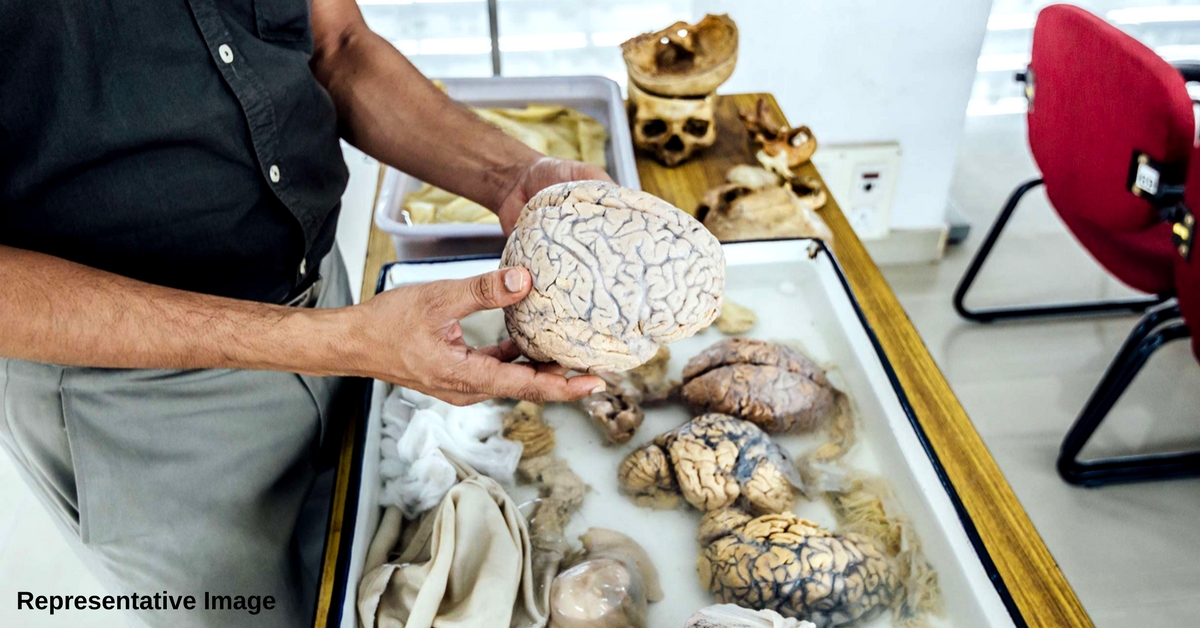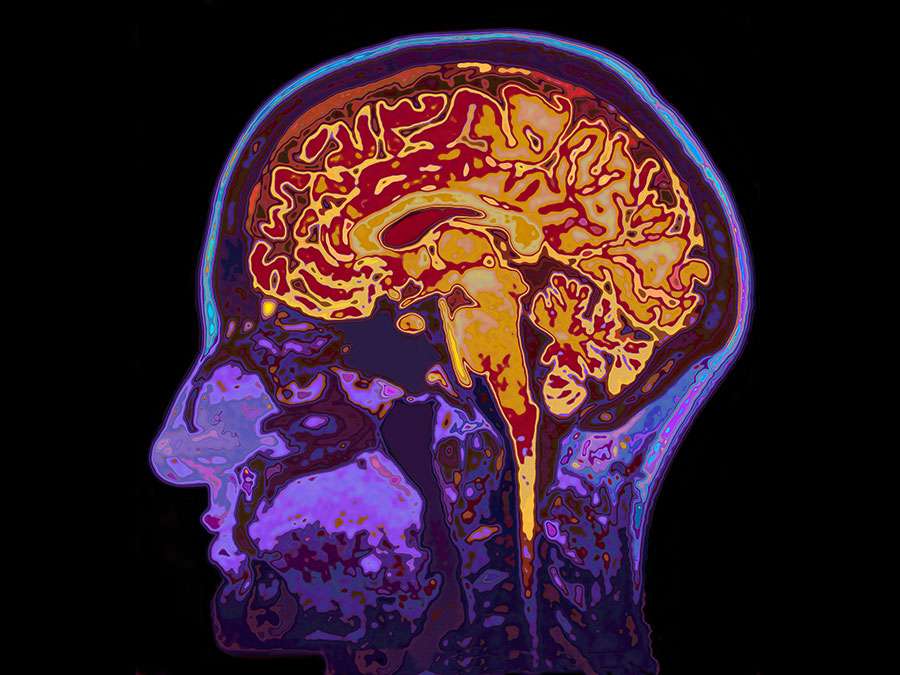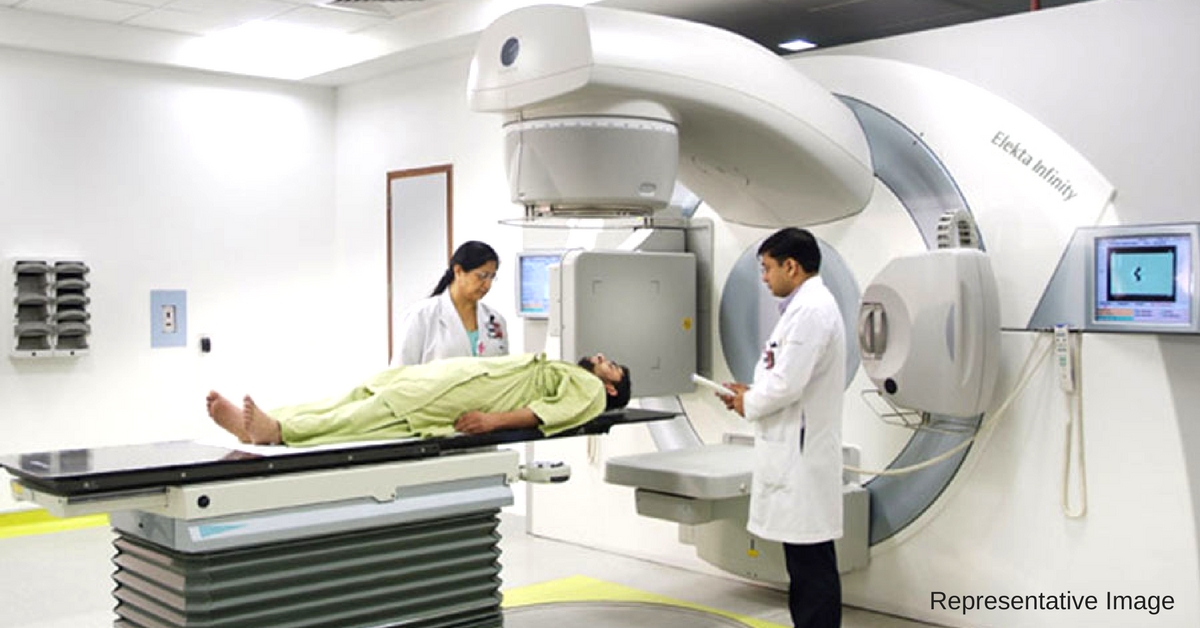In Haryana, An ‘Indian Brain Template’ Is Being Made: All You Need To Know
At the National Brain Research Centre (NBRC) in Haryana, a bunch of scientists are creating an unusual composite of brain images that could result in a one-of-its-kind Indian Brain Template (IBT)!

The world’s most complex command centre, the human brain, continues to baffle modern scientists. We know what it is made of (77% water, for a start) and how much it weighs (about 1.3-1.4 kgs) and that it has more interconnections (1,000 trillion synapses, give or take) than there are stars and planets in the Milky Way.
But how, exactly, does this neural spaghetti work? How does the brain cause our hearts to beat, how does it make us dream, and how does it vary in humans from region to region?

It was to answer big questions like these that European scientists came together in 2013 to collaborate on a 10-year scientific research project called the Human Brain Project. The same year, America too unveiled a similar project called the Brain Research through Advancing Innovative Neurotechnologies (BRAIN).
Two years later, Japan began work on Brain Mapping by Integrated Neurotechnologies for Disease Studies (Brain/MINDS), and in 2016, China launched the 15-year China Brain Project to advance its understanding of the brain.
All of these ambitious projects aim to distill human knowledge about the brain, and map it in action in the hope that doing so will lead to a greater understanding of the organ. Interestingly, India too has started its own efforts to decode the human brain.
At the National Brain Research Centre (NBRC) in Haryana, a bunch of scientists are creating an unusual database of brain images that, when put together, could result in a one-of-its-kind Indian Brain Template (IBT)!

In the recent years, brain templates have become increasingly important in neural science with many scientists pointing out that populations of different ethnicities show significant diversity in size, density, volume and location of neurons in key brain areas.
With several countries (like China, South Korea and Canada) already creating brain templates of their population, Indian scientists decided that its time India had one of its own too. The National Brain Research Centre (NBRC) in Manesar was selected for the Indian Brain Template (IBT) project which is being funded by the Department of Science and Technology.
Under the aegis of IBT, scientists are already working towards building a database of Magnetic Resonance Imaging (MRI) scans of 150 healthy Indian adults (including at least one person from every Indian state and union territory). About 40% of these participants are scheduled to be scanned in the next two months.
The images will then be compiled together to create an intricate composite. After a detailed analysis, this composite will help in creating an Indian archetype that will serve as a guide to scientists and surgeons studying brain anatomy—so far, they have been basing their research on Caucasian models.
“It’s a tough job recruiting and cajoling participants to spend 10 minutes inside an MRI scanner, which is about the time required for a detailed scan,” Pravat Mandal, a neuroscientist and project leader at the National Brain Research Centre, told The Hindu.

The NBRC team will also try to find out if the brain variation within Indians is greater than that among other countries, given India’s convoluted history of migrations.
Furthermore, the scientists will be looking at concentrations of a molecule called glutathione and how it varies with age. The reason? Glutathione is an antioxidant known to help repair cell damage and reduced concentrations of this molecule in specific brain regions may help predict Alzheimer’s disease.
Interestingly, NBRC was recently in news for discovering and experimentally demonstrating a way to repair damaged neurons!
NBRC’s initiative is also the first-of-its-kind because, while other Indian research groups have made similar attempts, none of them have the geographical and chronological spread of participants IBT aspires to have.
With the number of deaths due to neurological disorders like Alzheimer’s and Parkinson’s disease, and instances of strokes and epilepsy on the rise, the results of the IBT project can significantly elevate fundamental scientific discoveries in mental health along with medical care, training and evidence-based policymaking.
Also Read: Eat for a Sharper Mind — The 15 Healthiest Brain Foods You Should Be Eating
Like this story? Or have something to share? Write to us: [email protected], or connect with us on Facebook and Twitter.
NEW: Click here to get positive news on WhatsApp!

Similar Story

Laundromats in India? Couple Built Rs 100 Crore Biz Washing Dirty Linen Across 100 Cities
Faridabad’s Arunabh Sinha and his wife Gunjan Taneja launched UClean in 2017 to set up an organised laundromat service in India. Currently, they are spread across 100+ cities and have 350+ outlets across the country.
Read more >
If you found our stories insightful, informative, or even just enjoyable, we invite you to consider making a voluntary payment to support the work we do at The Better India. Your contribution helps us continue producing quality content that educates, inspires, and drives positive change.
Choose one of the payment options below for your contribution-
By paying for the stories you value, you directly contribute to sustaining our efforts focused on making a difference in the world. Together, let's ensure that impactful stories continue to be told and shared, enriching lives and communities alike.
Thank you for your support. Here are some frequently asked questions you might find helpful to know why you are contributing?


This story made me
-
97
-
121
-
89
-
167












